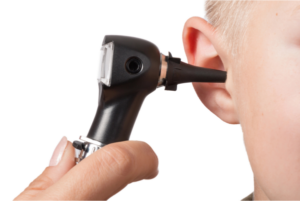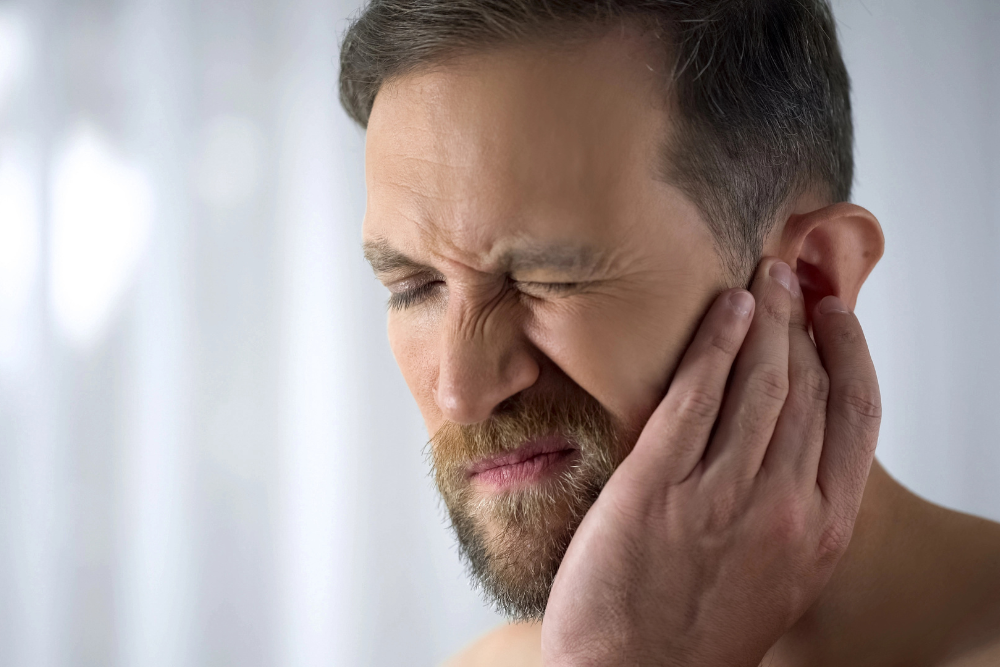Ear pressure and ear pain are common problems that many individuals experience at some point in their lives. While they are usually not serious, they can be uncomfortable and concerning. Understanding the symptoms, causes, and ENT treatments for ear pressure and ear pain can bring relief so you can resume living without the discomfort.
Below is a brief overview of what ear pressure and ear pain are, their symptoms, causes, and the treatments offered by an ENT specialist in Los Angeles.
What Is Ear Pressure?
Ear pressure refers to the feeling of fullness or discomfort in the ear. It can feel like your ear is being squeezed, or like there’s a buildup of something inside it. This sensation is often linked to changes in pressure in the environment or issues with the ear itself. In some cases, ear pressure may also be accompanied by ear pain, but they are not always connected.
Ear pressure usually occurs when the pressure inside the ear is different from the pressure in the environment around you. The ear has a part called the Eustachian tube, which connects the middle ear to the back of the throat. This tube helps equalize the pressure between the middle ear and the outside environment. When the Eustachian tube becomes blocked or doesn’t function properly, it can cause a feeling of pressure in the ear.
What Is Ear Pain?
Ear pain, also called otalgia, is the discomfort you feel in or around the ear. It can be sharp, dull, constant, or intermittent. Ear pain may affect one ear or both, depending on the cause. It can also be related to issues with the ear itself or with nearby structures, such as the jaw, teeth, or throat.
Ear pain can also be accompanied by other symptoms, such as hearing loss, ringing in the ears (tinnitus), drainage from the ear, dizziness, or even a fever. These additional signs can help ENT specialists in Los Angeles figure out what’s causing the ear pain and pressure.
Also Read: Why Does My Ear Hurt: Top 8 Causes of Ear Pain
Symptoms of Ear Pressure and Ear Pain
Here are some common symptoms of ear pressure and ear pain:
Ear Pressure Symptoms:
- Feelings of fullness or tightness in the ear
- Muffled hearing or sounds that seem distant
- Difficulty hearing
- Pressure when swallowing, yawning, or chewing
- Sensitivity to changes in altitude, such as when flying or driving in the mountains
Ear Pain Symptoms:
- Sharp or throbbing pain in or around the ear
- Pain that worsens when touching the ear or moving the jaw
- Drainage from the ear (which may be clear, yellow, or bloody)
- Ringing in the ear (tinnitus)
- Pain that comes and goes or is constant
- Fever or other signs of infection
If you experience any of these symptoms, it’s important to see an ENT specialist near me to learn the potential causes and the best ways to manage them.
Causes of Ear Pressure and Ear Pain
Ear pressure and ear pain can be caused by a variety of factors. Some are mild and temporary, while others may require medical attention. Here are some common causes:
Eustachian Tube Dysfunction
The Eustachian tube, which connects the middle ear to the throat, plays a key role in regulating ear pressure. If this tube becomes blocked or doesn’t work properly, it can cause a feeling of fullness or pressure in the ear. This condition is often caused by:
- Colds and allergies
- Sinus infections
- Environmental changes, like flying or diving
- Smoking or exposure to secondhand smoke
Middle Ear Infections (Otitis Media)
Ear infections in the middle ear are a common cause of ear pain and pressure. They are usually caused by bacteria or viruses and are more common in children but can affect adults as well. Symptoms of an ear infection can include pain, pressure, fever, and drainage from the ear. Infections can also make the Eustachian tube function less effectively, causing pressure to build up in the ear.
Outer Ear Infections (Otitis Externa)
An outer ear infection, also known as swimmer’s ear, occurs when the skin in the ear canal becomes infected. This can happen after swimming or exposure to moisture, or from inserting objects like cotton swabs into the ear. Symptoms of swimmer’s ear include pain when touching the ear, itching, and sometimes drainage.
Sinus Infections
Sinus infections, or sinusitis, can also cause ear pressure and pain. When the sinuses become inflamed due to infection or allergies, the pressure can extend to the ears. This pressure can cause discomfort and even pain, especially when you bend over or change positions.
Barotrauma
Barotrauma happens when there is a difference between the air pressure inside the ear and the outside environment. This is most commonly experienced during air travel or diving, where rapid altitude changes cause discomfort in the ears. It can also occur when driving in the mountains or using an elevator in a tall building.
Dental or Jaw Issues
Sometimes ear pain is not caused by problems in the ear itself, but from nearby structures. Issues with your teeth or jaw, such as tooth infections or temporomandibular joint (TMJ) disorders, can cause pain that radiates to the ear. If you notice jaw pain along with ear pain, this may be the cause.
Tinnitus
Tinnitus is the ringing or buzzing sound in the ear that can sometimes be accompanied by a feeling of pressure. While tinnitus is not always painful, it can be very bothersome. It is often linked to hearing loss, ear infections, or exposure to loud noise.
Earwax Buildup
Excessive earwax can block the ear canal, leading to a sensation of fullness, pressure, or even pain. In some cases, the earwax can become impacted, requiring professional removal.
Also Read: Can Chronic Ear Infections Increase the Risk of Bell’s Palsy?
Treatments for Ear Pressure and Ear Pain

For Eustachian Tube Dysfunction:
- Decongestants: Over-the-counter decongestants, like nasal sprays or oral medications, can help open up the Eustachian tube and relieve pressure.
- Warm Compresses: Applying a warm cloth to the affected ear can help reduce discomfort and relieve pressure.
- Yawning or Swallowing: These actions can help open the Eustachian tube and balance pressure in the ear.
For Ear Infections:
- Antibiotics: If the ear infection is caused by bacteria, an ENT specialist may prescribe antibiotics.
- Pain Relievers: Over-the-counter pain relievers, like ibuprofen or acetaminophen, can help manage pain and reduce fever.
- Warm Compresses: A warm compress applied to the ear can also help ease pain.
For Outer Ear Infections (Swimmer’s Ear):
- Ear Drops: Medicated ear drops can help treat the infection and relieve itching or pain.
- Keep the Ear Dry: It’s important to keep the ear dry and avoid getting water in it until the infection clears up.
For Sinus Infections:
- Nasal Sprays: Over-the-counter nasal sprays or saline rinses can help clear up sinus congestion and reduce pressure in the ears.
- Steam Inhalation: Breathing in steam or using a humidifier can help ease sinus pressure.
For Barotrauma:
- Yawning or Swallowing: These movements help to equalize pressure in the ear.
- Valsalva Maneuver: Gently blowing with your nose closed can help open the Eustachian tube.
- Decongestants: These can be used before traveling or diving to help prevent barotrauma.
For Jaw or Dental Issues:
- TMJ Treatments: If you suspect a TMJ disorder, your dentist may recommend a mouth guard or other treatments to relieve pressure on the jaw.
- Dental Care: For tooth infections, a dentist will provide the necessary treatment, which may include antibiotics or dental work.
When to See an ENT Specialist in Los Angeles
While most ear pressure and ear pain issues are temporary and can be treated at home, there are times when you should seek medical help. If you experience:
- Severe or worsening pain
- Fever along with ear pain
- Hearing loss or drainage from the ear
- Pain lasting more than a few days
A doctor can help identify the cause and recommend appropriate treatment to help you feel better.
Conclusion
Ear pressure and ear pain are common problems that can affect people of all ages. While these symptoms are often temporary and mild, they can be uncomfortable and sometimes serious. Understanding the causes and treatment options can help you find relief quickly and know when to seek medical attention. Whether it’s a simple cold, an ear infection, or something more serious, getting the right treatment can help you recover and get back to your normal routine. Contact C/V ENT Surgical Group today!

